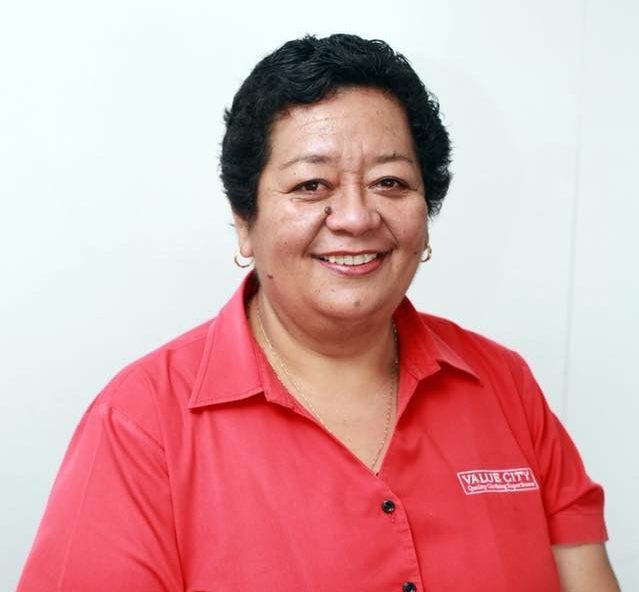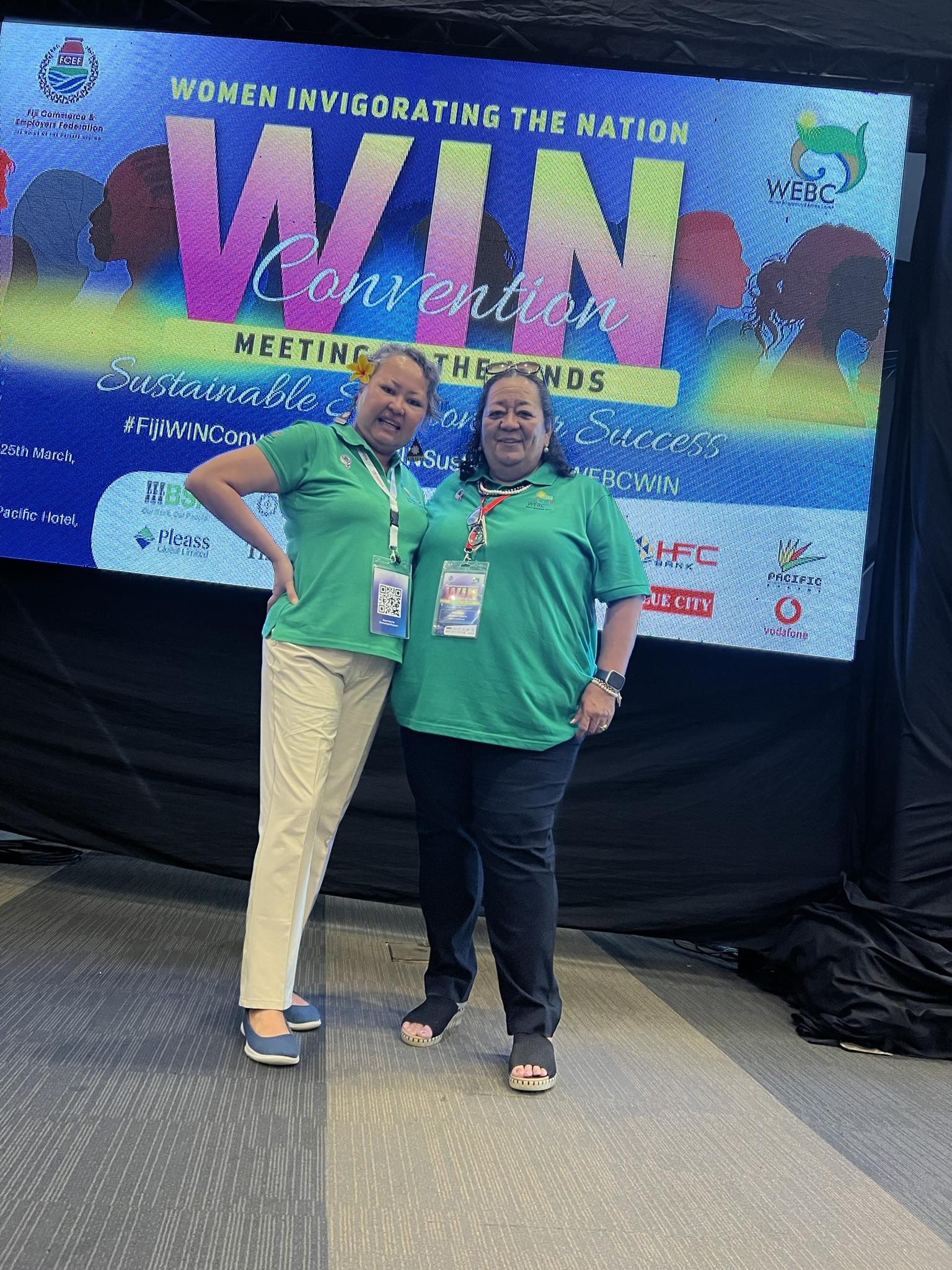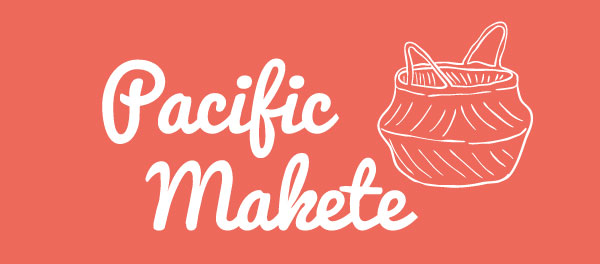Vera Chute: Value City

By Sera Tikotikovatu-Sefeti
Value City is a household name across Fiji as a source of second-hand clothes, books and other pre-loved treasures.
The family-owned business was started in May 1990 by Alick Patrick Chute and his Australian partner, with a store in Labasa. After a year, Chute decided to expand to Suva, and realised, who better to manage the new branch than his talented daughter, Vera?
“I was with Westpac for almost seven years, and then joined the business, and it was a very difficult decision to make because I was in a secure job and getting good pay,” Vera recalls.
“It was a higher risk to move from the corporate sector into entrepreneurship, something I had no knowledge about.”
But she took her father’s advice to heart. “You won’t regret it,” Vera recalled her dad saying. “I will give you transportation,” he told her, “and you will most likely have to go on buying trips overseas.”
The promise of overseas trips appealed to young and adventurous Vera.
“I thought, man, the bank doesn’t send me overseas, so I took that up and as they say, the rest is history, and I have never regretted moving away and working.
“We have to work hard, but you know that you are working for yourself and your family.”
She believes her parents started the business out of necessity, “for the lack of clothing, and to complement their income; they were both working nine to five jobs when they started something for themselves on the side, but it really took off.”
Vera’s father was her biggest inspiration. “My dad was my mentor, my inspiration, he was very entrepreneurial, very business-minded, and articulate.”
Vera adds, “One of the very important lessons I learned from him that I still apply today, is to do business with your head; use your head to do your business, not your heart.”
Chute notes that a common struggle facing local entrepreneurs is the challenge of separating relatives’ requests from business. “Like us, relatives think that you run a business, you have all this money that we can give loads out, so the rule of separation is very important.”
Value City’s workforce is 40% female. “In the beginning, we gave them jobs to help with the family, and today we are still empowering women, giving them some financial security, and we have mothers who have worked with us, daughters or their daughter-in-laws continue to work with us,” she said.
Sustainability

Businesses such as Value City are well positioned to meet customer preferences for sustainability.
“I don’t think there was an inkling [or] idea about sustainability being discussed 30 years ago, and that was one of the major challenges then, changing the mindset of people to buy second-hand clothing,” Chute recalls.
“Second-hand had a stigma of snobbery attached to it, like people would be looked down on if they bought it.”
Decades later, the business says it is still focussed on quality.
“Number one, we had to have very good quality control measures in place; you know, don’t bring in rubbish; no one is going to buy rubbish, a good upmarket presentation; it’s all recycled goods; you don’t turn it around into something that looks attractive; something that is affordable.”
Their strategic plan also includes contingencies in the event products do not sell. “That is where our CSR policy comes in; we try not to put that into our landfill in Fiji, it has to avoid going into landfill.
“So, we have a process in place for upcycling, and for donations for our CSR, we’ll give them away so that we get to the outer islands, maritime rural areas, and just try to really reduce what goes to the landfill.”
As pioneers, Value City has paved the way for other small second-hand clothing businesses to improve their presentation and quality. Chute says while the sector is now ‘ruthlessly competitive’, “It’s good for the consumers because everybody got a good level of second-hand clothing options,”
Another strategy was to diversify products in order to grow. “We bring in around 60 to 40 foot containers, so in that we have everything ranging from clothes, shoes, and bags, we have diversified from clothing, to other related items like household goods, furniture, or electrical items, which have been popular for us as well.”
Chute says they are facing a new set of challenges now: “We have issues concerning the supply chain, importer, shipping cost, and shipping delays.”
Vera’s tips for success
- Find something you will enjoy or be passionate about.
- Be prepared to work hard.
- Don’t hesitate to ask for help.
- Don’t be afraid to fail, if at first you don’t succeed, try again. It builds resilience in yourself and your business.

